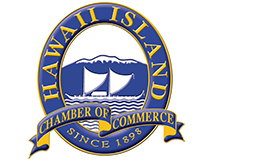An update on two UH Hilo colleges
Although I usually focus on University of Hawai‘i at Hilo as a whole, there is a lot going on in our six colleges that shows where we are going and the impact our university has on our community, and I’d like to focus on them for the coming months’ columns. The College of Arts and Sciences, and the College of Agriculture, Forestry, and Natural Resource Management, for example, both provide excellent opportunities for students to learn and grow.
The College of Arts and Sciences offers a wide range of undergraduate programs, 17 in total, in social and earth sciences, political science, sociology, the arts, language, history, and more. It also houses the School of Education that offers two master degree programs that directly impact our local communities—one prepares students to become teachers, the other fosters professional growth of current teachers. Other graduate programs are in counseling psychology and heritage management, also of great benefit to our local communities. Several certificate programs help students round out their skillset.
Leading the college is Michael Bitter, a professor of history who taught at UH Hilo for 17 years before becoming interim dean of the college several years ago; he is now the permanent dean. He’s been working on a variety of initiatives designed to improve student support as well as faculty and staff success. He’s also actively engaged in promoting the expansion of academic programs and collaborating with the Center for Global Education and Exchange to increase exchange opportunities for UH Hilo students to study at partner universities, both nationally and internationally.
The research and internships happening at the college are often inter-related; it’s not unusual for students to work alongside researchers, gathering and analyzing data, with their names included on published studies in leading journals, reflecting their contributions to this important work. Much of this research directly affects our island communities and environment, for example, students are working closely with faculty on investigating mental and physical health issues of combat veterans and firefighters, timely work given the recent wildfire tragedies on Maui.
The College of Agriculture, Forestry, and Natural Resource Management is now under new leadership. Norman Arancon, who started his work as director of the college over the summer, is a horticulturalist who joined UH Hilo in 2008. He specializes in sustainable agriculture, horticulture, crop sciences, agroecology, and organic agriculture. His research on vermiculture and vermicomposting is recognized and valued internationally, and the totality of his expertise is of great benefit to the Hawai‘i agricultural community.
He’s also been very involved in college affairs and the UH Hilo community, with student success a high priority. I know he will make an excellent leader for the college.
The college offers baccalaureate degrees in three areas: animal health and management, including a pre-veterinary option; aquaculture; and tropical agroecology. The college also offers certificates in beekeeping and equine science. Overall curriculum includes classroom work plus hands-on, practical, technology-based education at the university’s agricultural farm laboratory in Pana‘ewa.
In this college, too, faculty and students are conducting research of great importance to our island and state agricultural communities as well as the public at large. For example, students are working closely with researchers investigating the feasibility of growing substantial amounts of “energycane,” sugar cane used for its biomass as a source for jet fuel—groundbreaking research happening at the farm lab that has the potential to impact local farmers, the state’s sustainability goals, and the local economy.
This college also provides a home for our new aeronautical sciences program. We celebrated the first two graduates last spring, and the program is being offered provisionally beginning this fall. There are two pathways: the pilot pathway is the first step in a lucrative career as an airline pilot; the aerial information technology pathway leads to professional certification as a commercial drone operator. Professional pilots and drone operators are badly needed locally, nationally, and internationally, and this program will produce skilled graduates ready for the workforce or advanced training.
I’m excited about the changes and growth happening at these two colleges, and I look forward to updating you about our other colleges in future columns.
With aloha,
Bonnie D. Irwin


Recent Comments